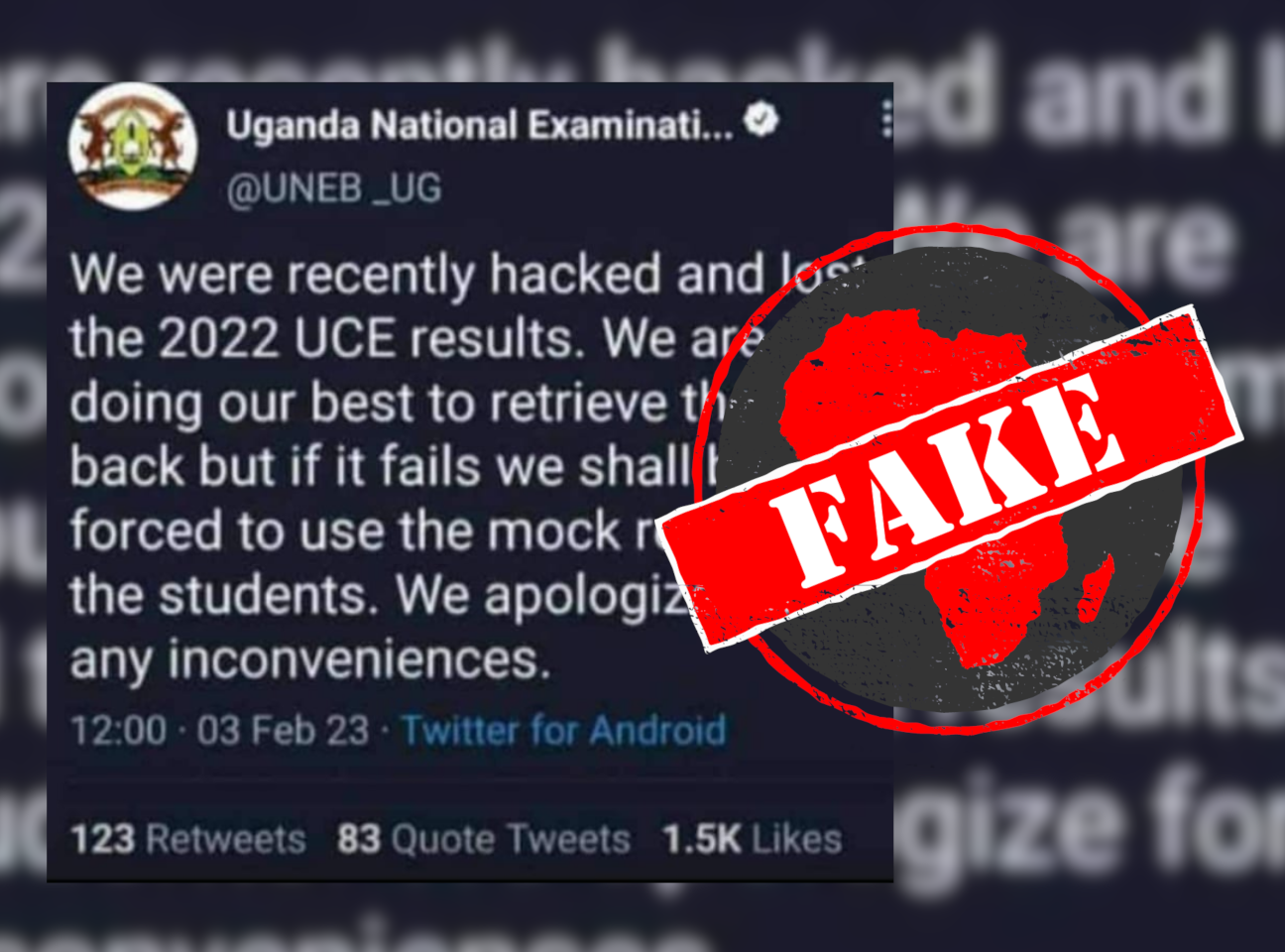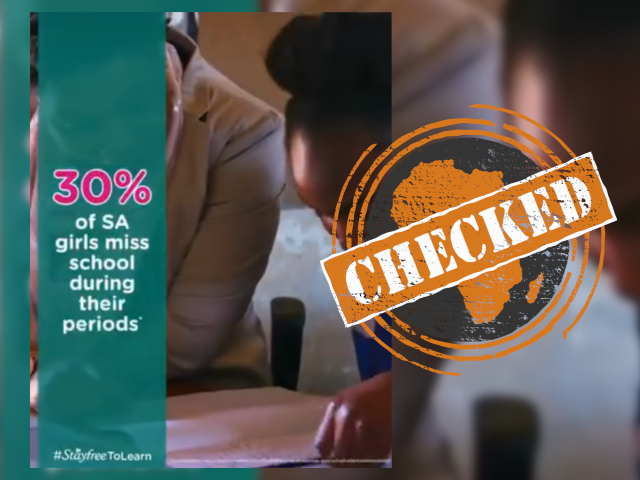IN SHORT: The Twitter post could have students breaking out in a sweat. But the Uganda National Examinations Board didn’t announce that its systems had been hacked. Mercifully, the tweet is fake.
Has the agency that runs national exams in Uganda lost students’ much-awaited results to hackers?
That’s the claim in what seems to be a tweet by the Uganda National Examinations Board (Uneb), circulating on Facebook in February 2023.
It reads: “We were recently hacked and lost the 2022 UCE results. We are doing our best to retrieve them back but if it fails we shall be forced to use the mock results of the students. We apologize for any inconveniences.”
The UCE is the Uganda Certificate of Education, the country’s secondary school qualification. Exams for the certificate were held from 14 October to 18 November 2022.
UCE exam paper marking started in December, but the results are yet to be announced.
The screenshot has been posted here, here, here, here, here, here and here. But did the exams board really tweet this alarming message?

‘#UCE2022 results in safe custody’
One sign that the tweet is fake is that it comes from the Twitter handle @UNEB _UG. Note the space before the underscore. Uneb’s official Twitter account has the handle @UNEB_UG, with no space before the underscore.
On 4 February, Uneb posted the screenshot on Twitter, stamped “FAKE.”
“Please disregard news making rounds on social media, indicating that the UNEB ‘system’ was recently hacked into, and that the 2022 UCE results were ‘lost’. The information is fake and baseless,” the tweet reads.
. @Blessedjkm1 Please disregard news making rounds on social media, indicating that the UNEB 'system" was recently hacked into, and that the 2022 UCE results were 'lost". The information is fake and baseless.
— Uganda National Examinations Board (@UNEB_UG) February 4, 2023
1/2 pic.twitter.com/kQ7TY6oTVb
It continues: “We would like to assure the public that the #UCE2022 results are in safe custody, and will be released at the appropriate time.”
Republish our content for free
For publishers: what to do if your post is rated false
A fact-checker has rated your Facebook or Instagram post as “false”, “altered”, “partly false” or “missing context”. This could have serious consequences. What do you do?
Click on our guide for the steps you should follow.
Publishers guideAfrica Check teams up with Facebook
Africa Check is a partner in Meta's third-party fact-checking programme to help stop the spread of false information on social media.
The content we rate as “false” will be downgraded on Facebook and Instagram. This means fewer people will see it.
You can also help identify false information on Facebook. This guide explains how.



Add new comment